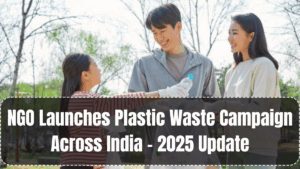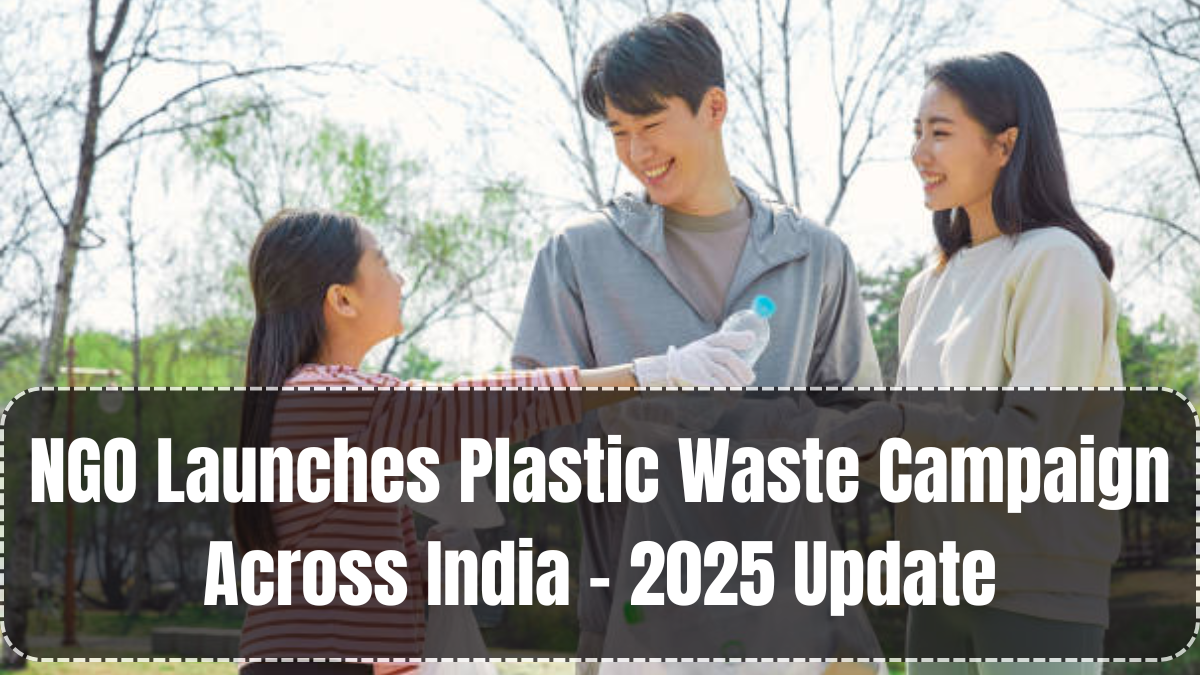Plastic pollution continues to be one of the most pressing environmental concerns in India. In response, several NGOs have stepped up their efforts in 2025 to fight this crisis through dynamic Environmental Campaigns. These grassroots movements are not only cleaning local communities but also educating citizens about the long-term hazards of plastic use.
The latest campaign, launched in August 2025 by a coalition of leading environmental NGOs, focuses on both action and awareness. From rural villages to urban centers, these initiatives are igniting a wave of participation across schools, businesses, and local governing bodies.

What the Plastic Waste Campaign Includes
This nationwide campaign operates on a 3-tier model:
-
Community Clean-ups: Volunteers conduct weekly drives in high-litter zones like beaches, riversides, and markets.
-
Workshops & Seminars: Educational programs in schools and colleges teach students about plastic-free alternatives.
-
Plastic-Free Certifications: NGOs are collaborating with municipal bodies to recognize businesses that minimize or eliminate plastic usage.
The goal is not just short-term cleaning, but long-term behavioral change among citizens and local industries.
Key Partners and Support
The 2025 campaign has gathered support from:
-
Ministry of Environment, Forest and Climate Change (MoEFCC)
-
State pollution control boards
-
Corporate CSR programs from FMCG and packaging companies
-
Educational institutions like Delhi University and IIT Bombay
These partnerships have provided not just funding but logistical and research-based support to ensure the success of the Environmental Campaigns against plastic waste.
Areas of Focus in 2025
Based on recent data, the following sectors are contributing the most to non-recyclable plastic usage in India:
| Sector | % of Total Plastic Waste |
|---|---|
| Food & Beverage Packaging | 40% |
| Personal Care Products | 22% |
| Online Shopping/Delivery | 18% |
| Agriculture | 10% |
| Miscellaneous | 10% |
The campaign is specifically targeting food vendors, delivery startups, and cosmetics retailers to adopt biodegradable or reusable materials in packaging.
Key Highlights from the Campaign
Some impactful highlights from the ongoing efforts include:
-
Over 2,000 schools across India have pledged to go plastic-free in lunch packaging.
-
5 lakh plastic bags replaced with cloth or jute alternatives during a month-long drive in Maharashtra.
-
Digital outreach campaigns using Instagram and WhatsApp reels have reached over 10 million youth with anti-plastic messaging.
-
Recycling stations have been installed in 15 tier-2 cities to promote segregated waste disposal.
All of these efforts are building momentum under the larger mission of Swachh Bharat and the Sustainable Development Goals (SDGs).
How You Can Support
Anyone can contribute to these Environmental Campaigns in 2025 by:
-
Volunteering with local NGOs involved in clean-up drives.
-
Donating reusable bags and containers for distribution in slum areas and markets.
-
Hosting awareness sessions in schools, societies, and offices.
-
Reporting illegal dumping sites or single-use plastic sales to local authorities.
Even small efforts like switching to bamboo toothbrushes or carrying your own shopping bag go a long way.
The Road Ahead
While laws like the Single-Use Plastic Ban (2022) laid the groundwork, sustained citizen involvement is what will define success in 2025. NGOs are now shifting focus to not only remove existing waste but also to cut off its source—by challenging consumer habits and influencing corporate responsibility.
States like Kerala, Sikkim, and Maharashtra are already seeing results with cleaner streets and higher recycling rates. With continuous support, these campaigns could set a global example for people-powered environmental protection.
FAQs
What is the main goal of the 2025 NGO plastic waste campaign?
The main goal is to reduce plastic pollution through awareness, community clean-up drives, and promoting sustainable alternatives across India.
Which states are most active in these campaigns?
Kerala, Maharashtra, Tamil Nadu, and Sikkim are leading in campaign participation and plastic waste management reforms.
Can individuals join the campaign?
Yes, individuals can volunteer, donate materials, spread awareness on social media, and even start local chapters of NGO efforts.
What alternatives to plastic are being promoted?
Reusable cloth and jute bags, metal or bamboo straws, biodegradable packaging, and refillable containers are key alternatives.
Are businesses involved in these campaigns?
Yes, many FMCG and delivery companies are partnering with NGOs to improve their supply chain sustainability and reduce plastic use.
Click here to know more.
